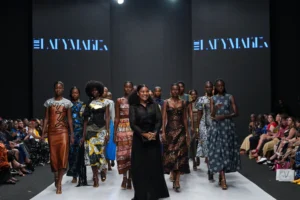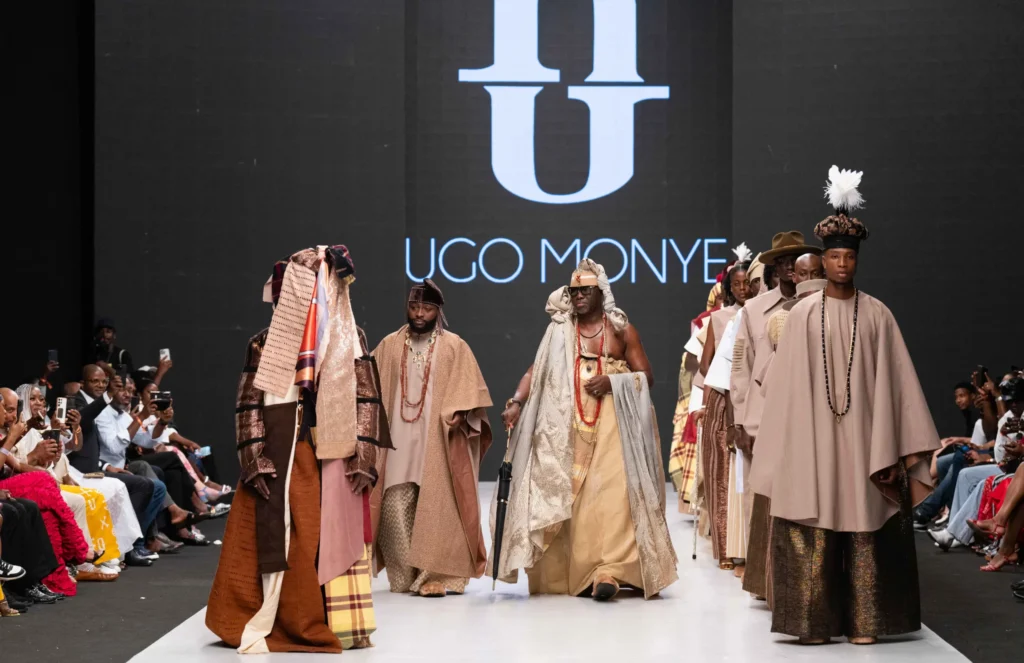Lagos Fashion Week 2024 concluded with a powerful statement: African fashion is not only rich in culture but also bursting with commercial potential. The internationally acclaimed fashion showcase, held in Nigeria’s commercial capital, caught the attention of the United Nations Educational, Scientific and Cultural Organization (UNESCO), which praised the event for celebrating Africa’s cultural heritage and design innovation.
With Africa’s fashion and textile industry projected to generate over US$15.5 billion in exports, Lagos Fashion Week stands at the heart of a movement redefining the global fashion narrative and positioning Nigeria as a design and production hub.
UNESCO’s Endorsement: Africa’s Cultural Assets as Economic Drivers
UNESCO’s interest in Lagos Fashion Week 2024 is a landmark development. The organization acknowledged the event as a catalyst for preserving and promoting African heritage through fashion, while also unlocking economic opportunities for creatives across the continent.
In a public statement, UNESCO emphasized the importance of cultural industries like fashion in shaping national identity, promoting sustainable development, and driving youth employment. Their endorsement underscores how Lagos Fashion Week has grown beyond a style platform into a space for global cultural dialogue and socioeconomic transformation.

From Runway to Revenue: Africa’s Fashion Economy on the Rise
According to recent estimates, Africa’s fashion sector is already worth US$31 billion, with Nigeria holding a significant share. Exports of African fashion — driven by increased visibility, diaspora demand, and collaborations with international designers — are expected to surpass US$15.5 billion in the near term.
Lagos Fashion Week 2024 reflected this shift in real time. Over 70 designers from Nigeria, Ghana, Senegal, South Africa, and other African nations presented collections that blended traditional textiles, local craftsmanship, and contemporary silhouettes. The collections celebrated themes of sustainability, Afro-heritage, gender fluidity, and global inclusivity.
Buyers from Europe, North America, the Middle East, and Asia were in attendance, exploring sourcing partnerships and retail opportunities with African fashion houses. Industry analysts say this year’s event could lead to new export deals and licensing agreements that further scale Africa’s footprint in global fashion markets.
Lagos at the Epicenter of African Design Innovation
As the host of Fashion Week, Lagos continues to assert itself as Africa’s fashion epicenter. Its vibrant creative scene, youth-driven style movements, and growing infrastructure for design, tailoring, and retail have attracted global fashion giants and investors alike.
Designers such as Kenneth Ize, Andrea Iyamah, Tia Adeola, and Emmy Kasbit, many of whom rose through the Lagos Fashion Week platform, have achieved international acclaim, gracing runways in Paris, Milan, and New York. Their success has fueled a new generation of fashion entrepreneurs committed to creating globally competitive brands grounded in African heritage.
Sustainability and Circular Fashion Take Center Stage
A major focus of the 2024 edition was circular fashion. Numerous designers used recycled fabrics, natural dyes, and upcycled materials in their collections, reflecting a growing commitment to sustainability across the continent. Panel discussions and workshops emphasized slow fashion, ethical labor, and climate-conscious practices.
The Fashion Week’s organizers collaborated with local artisans, textile cooperatives, and sustainability experts to highlight how Africa’s indigenous systems of production — such as hand-dyeing, weaving, and embroidery — offer sustainable alternatives to fast fashion.
Government and Private Sector Collaboration Key to Industry Growth
Despite the excitement, fashion stakeholders continue to call for stronger support from African governments. The sector faces challenges, including limited access to finance, poor infrastructure, counterfeiting, and a skills gap in technical production.
However, Nigeria’s government has signaled its intent to support creative industries as a means of diversifying the economy. During the event, the Nigerian Export Promotion Council (NEPC) announced new incentives for fashion exporters, while the Bank of Industry promoted loan programs tailored for fashion SMEs.
Private partnerships are also playing a role. This year’s event was sponsored by major brands including Heineken, Ecobank, and international fashion platforms like Style House Files. These partnerships reflect growing confidence in the commercial viability of African fashion.
Fashion as Cultural Diplomacy
Beyond economics, Lagos Fashion Week 2024 demonstrated the soft power of fashion as a tool for cultural diplomacy. Through collaborations with global embassies, art institutions, and cultural organizations, the event facilitated cross-border exchanges and redefined Africa’s image on the world stage.
By celebrating indigenous knowledge, storytelling through dress, and diversity in beauty standards, the event pushed back against Eurocentric definitions of style and elegance — helping to decolonize global fashion narratives.
Looking Ahead: Africa’s Time on the Global Runway
As Lagos Fashion Week continues to grow, organizers are setting their sights on deeper regional integration and international partnerships. Plans are underway to establish year-round fashion infrastructure — including production hubs, digital marketplaces, and training academies — that will support designers and artisans across the continent.
With its blend of creativity, heritage, and entrepreneurship, Africa’s fashion industry is no longer emerging — it is ascending. And as the global spotlight shines brighter on Lagos, the world is beginning to recognize that African fashion is not only beautiful but economically transformative.
By 2025 and beyond, with continued investment and global partnerships, Lagos Fashion Week could serve as the launchpad for Africa’s rise as a fashion superpower — reshaping not just wardrobes, but economies.







